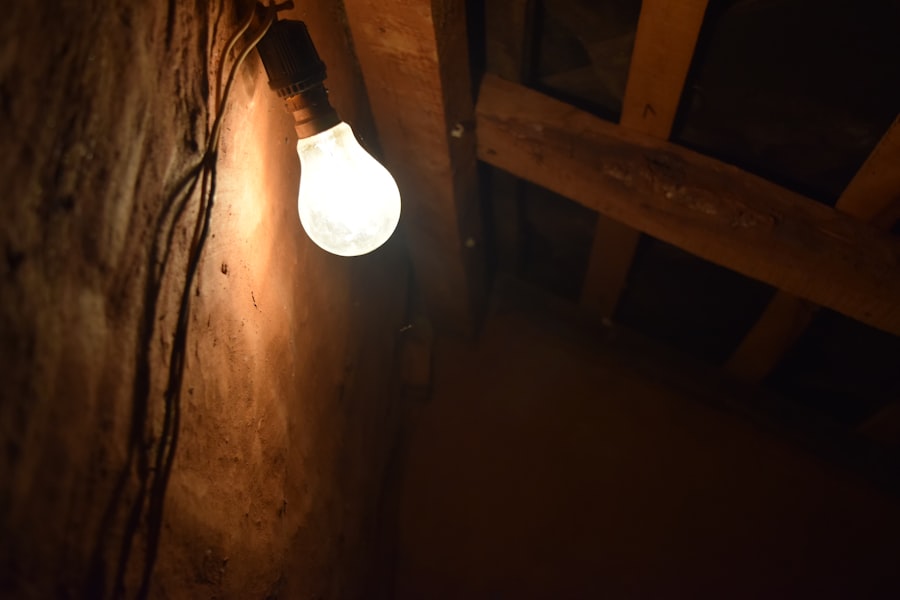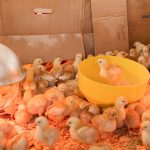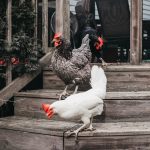Winter’s Impact on Chicken Egg Production
Winter significantly affects egg production in chickens due to several factors. Reduced daylight hours disrupt the natural egg-laying cycle. Cold temperatures stress the birds, potentially decreasing egg production.
Chickens require more energy to maintain body heat, which can divert resources from egg production. Cold weather may also impact egg quality, resulting in thinner shells and lower overall production. Chicken breed influences winter egg production.
Some breeds are more cold-hardy and better adapted for winter laying, while others may struggle to maintain consistent production in colder months. Understanding these breed-specific traits is essential for effective flock management during winter. Environmental factors and breed characteristics present challenges for chicken owners during winter.
However, with appropriate knowledge and management strategies, it is possible to minimize winter’s impact on egg production and maintain a healthy, productive flock.
Table of Contents
- 1 Providing the right nutrition for winter egg laying
- 2 Creating a comfortable and warm environment for your chickens
- 3 Managing daylight exposure for winter egg production
- 4 Ensuring access to fresh water during the winter months
- 5 Monitoring the health of your chickens during winter
- 6 Implementing supplemental lighting for increased egg production
- 7 FAQs
- 7.1 What factors can affect egg production in the winter?
- 7.2 How can I increase daylight for my chickens in the winter?
- 7.3 What should I feed my chickens to keep them laying eggs in the winter?
- 7.4 How can I keep my chicken coop warm in the winter?
- 7.5 Are there any specific breeds of chickens that are better at laying eggs in the winter?
Key Takeaways
- Winter can significantly impact egg production in chickens due to colder temperatures and reduced daylight
- Providing the right nutrition, including a balanced diet and additional supplements, can help support egg laying during the winter months
- Creating a comfortable and warm environment for chickens, such as using insulation and heaters, can encourage egg production
- Managing daylight exposure through artificial lighting can help stimulate egg laying during the shorter days of winter
- Ensuring access to fresh water is crucial for maintaining the health and egg production of chickens during the winter
- Regularly monitoring the health of chickens, including checking for signs of illness and providing appropriate care, is essential during the winter
- Implementing supplemental lighting, such as timers or LED bulbs, can help increase egg production by extending the daylight hours for chickens
Providing the right nutrition for winter egg laying
Protein: The Building Block of Egg Production
Protein is essential for egg production, so it is important to ensure that chickens are receiving an adequate amount of high-quality protein in their diet.
Supporting Strong Eggshells and Overall Health
Additionally, providing a diet rich in vitamins and minerals, such as calcium and vitamin D, can help support strong eggshells and overall egg quality. During the winter, chickens may require additional calories to maintain their body temperature and energy levels. This means that it may be necessary to adjust their feed rations to account for the increased energy needs during the colder months.
Supplementing the Diet for Optimal Egg Production
Supplementing their diet with grains and seeds can provide an extra source of energy to help support egg production during the winter. It is also important to ensure that chickens have access to fresh forage and greens, even during the winter months. This can help provide additional nutrients and variety in their diet, which can support overall health and egg production.
By providing the right nutrition for winter egg laying, chicken owners can help support their flock’s productivity and overall well-being during the colder months.
Creating a comfortable and warm environment for your chickens
Creating a comfortable and warm environment for chickens is essential for maintaining egg production during the winter months. Providing adequate shelter from cold temperatures and drafts is crucial for keeping chickens healthy and stress-free. Insulating the coop and sealing any drafts can help maintain a comfortable temperature inside the coop, which is important for supporting egg production.
In addition to insulation, providing supplemental heat sources such as heat lamps or heated perches can help keep chickens warm during the winter. It is important to place heat sources strategically to ensure that chickens have access to warmth without creating hot spots or fire hazards in the coop. Monitoring the temperature inside the coop and making adjustments as needed can help ensure that chickens are comfortable and able to maintain consistent egg production during the winter.
Bedding material also plays a role in creating a warm and comfortable environment for chickens. Providing ample bedding, such as straw or wood shavings, can help insulate the coop and provide a comfortable surface for chickens to rest on. Keeping bedding clean and dry is important for maintaining a healthy environment and supporting egg production during the winter months.
By creating a comfortable and warm environment for chickens, chicken owners can help mitigate the impact of cold temperatures on egg production and ensure that their flock remains healthy and productive throughout the winter.
Managing daylight exposure for winter egg production
Managing daylight exposure is crucial for maintaining egg production during the winter months. The decrease in daylight hours can disrupt the natural egg-laying cycle of chickens, leading to a decrease in egg production. Supplemental lighting can be used to extend daylight hours and encourage consistent egg laying during the winter.
When implementing supplemental lighting, it is important to provide a gradual increase in light exposure to mimic natural daylight patterns. This can help prevent stress and disruption to the chickens’ natural rhythms. Additionally, it is important to provide a consistent light schedule, with at least 14-16 hours of light per day, to support optimal egg production during the winter months.
It is important to place supplemental lighting strategically in the coop to ensure that all chickens have access to light without creating glare or discomfort. Using energy-efficient LED bulbs can help minimize energy costs while providing adequate light for the chickens. Monitoring light exposure and making adjustments as needed can help maintain consistent egg production throughout the winter.
While supplemental lighting can help support egg production during the winter, it is important to consider the overall well-being of the chickens. Providing periods of darkness for rest is essential for maintaining their health and preventing stress. By managing daylight exposure effectively, chicken owners can help support consistent egg production throughout the winter months.
Ensuring access to fresh water during the winter months
Ensuring access to fresh water is essential for maintaining egg production during the winter months. Cold temperatures can cause water sources to freeze, making it difficult for chickens to stay hydrated. Providing heated waterers or regularly checking and replacing frozen water can help ensure that chickens have access to fresh water throughout the winter.
In addition to preventing freezing, it is important to monitor water quality and cleanliness during the winter months. Chickens require clean water to maintain their health and support optimal egg production. Regularly cleaning waterers and providing fresh water daily can help prevent contamination and support overall well-being in chickens.
It is also important to consider water placement in the coop to prevent spills and freezing. Placing waterers in a sheltered area or using heated bases can help prevent water from freezing and ensure that chickens have access to water at all times. By ensuring access to fresh water during the winter months, chicken owners can help support their flock’s health and productivity throughout the colder season.
Monitoring the health of your chickens during winter

Conducting Regular Health Checks
Regular health checks, including observing behavior, checking for signs of illness, and monitoring weight and condition, can help identify any health issues early on.
Maintaining a Healthy Environment
In addition to physical health checks, it is important to monitor environmental conditions in the coop. Ensuring proper ventilation, managing moisture levels, and maintaining cleanliness can help prevent respiratory issues and other health problems in chickens during the winter. Providing a clean and dry environment, along with regular coop maintenance, can help support overall health and well-being in chickens.
Preventing Illness through Biosecurity and Vaccination
It is also important to be proactive in preventing illness by implementing biosecurity measures and vaccination protocols as recommended by a veterinarian. By staying proactive and vigilant in monitoring the health of chickens during winter, chicken owners can help prevent illness and maintain optimal egg production throughout the colder months.
Implementing supplemental lighting for increased egg production
Implementing supplemental lighting can be an effective strategy for increasing egg production during the winter months. The decrease in daylight hours can disrupt the natural egg-laying cycle of chickens, leading to a decrease in overall egg production. Supplemental lighting can be used to extend daylight hours and encourage consistent egg laying throughout the winter.
When implementing supplemental lighting, it is important to consider the specific needs of your flock and provide a gradual increase in light exposure to mimic natural daylight patterns. This can help prevent stress and disruption to the chickens’ natural rhythms. Additionally, providing a consistent light schedule with at least 14-16 hours of light per day can help support optimal egg production during the winter months.
It is important to place supplemental lighting strategically in the coop to ensure that all chickens have access to light without creating glare or discomfort. Using energy-efficient LED bulbs can help minimize energy costs while providing adequate light for the chickens. Monitoring light exposure and making adjustments as needed can help maintain consistent egg production throughout the winter.
While supplemental lighting can be an effective tool for increasing egg production during the winter, it is important to consider the overall well-being of the chickens. Providing periods of darkness for rest is essential for maintaining their health and preventing stress. By implementing supplemental lighting effectively, chicken owners can help support increased egg production throughout the winter months while ensuring their flock’s well-being.
If you’re looking for ways to keep your chickens laying eggs in the winter, you may also be interested in learning about how long it takes for chicken eggs to hatch naturally. This article from Poultry Wizard provides valuable information on the incubation process and what to expect when hatching chicken eggs. Check it out here.
FAQs
What factors can affect egg production in the winter?
The shorter daylight hours, colder temperatures, and changes in diet can all affect egg production in the winter.
How can I increase daylight for my chickens in the winter?
You can use artificial lighting in the chicken coop to extend the daylight hours and encourage egg production in the winter.
What should I feed my chickens to keep them laying eggs in the winter?
A balanced diet with sufficient protein and nutrients, as well as access to fresh water, is important for maintaining egg production in the winter.
How can I keep my chicken coop warm in the winter?
Insulating the coop, using heat lamps, and providing adequate ventilation can help keep the coop warm and comfortable for the chickens in the winter.
Are there any specific breeds of chickens that are better at laying eggs in the winter?
Certain breeds, such as Rhode Island Reds and Leghorns, are known for their ability to lay eggs consistently throughout the winter months.
Meet Walter, the feathered-friend fanatic of Florida! Nestled in the sunshine state, Walter struts through life with his feathered companions, clucking his way to happiness. With a coop that’s fancier than a five-star hotel, he’s the Don Juan of the chicken world. When he’s not teaching his hens to do the cha-cha, you’ll find him in a heated debate with his prized rooster, Sir Clucks-a-Lot. Walter’s poultry passion is no yolk; he’s the sunny-side-up guy you never knew you needed in your flock of friends!







